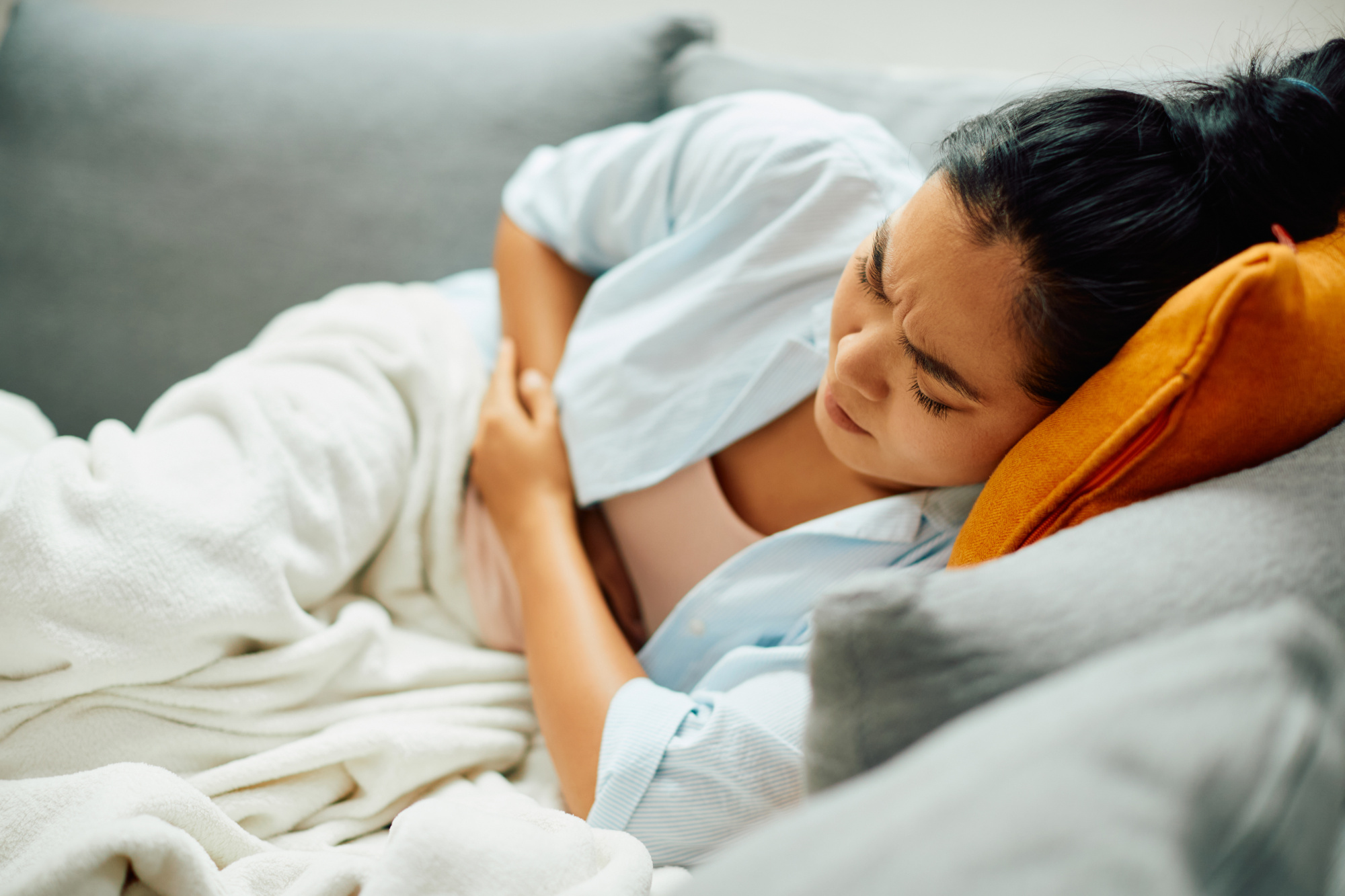Did you know alcohol can impact many parts of your health—including your menstrual cycle? While the occasional drink might not seem like a big deal, regular or excessive drinking can disrupt your period in surprising ways. From hormonal imbalances to irregular cycles, understanding how alcohol affects your reproductive health can be empowering. This guide breaks down how alcohol and your menstrual period are connected, what to expect in the short and long term, and how to help keep things balanced.
The Connection Between Alcohol and Hormones
Can alcohol affect your period? Yes! Your menstrual cycle is controlled by a delicate balance of hormones, including estrogen and progesterone. Alcohol can interfere with your body’s ability to regulate these hormones, leading to imbalances that affect your period.
How Alcohol Affects Estrogen Levels
How does alcohol affect menstruation and hormones? Alcohol consumption can raise estrogen levels in your body. Estrogen plays a critical role in regulating your menstrual cycle, and too much of it can lead to irregular periods, such as missed or delayed periods. Higher estrogen levels are also linked to more intense premenstrual symptoms (PMS), such as bloating, mood swings, and breast tenderness.
Disruption of Progesterone
How else does alcohol affect your period? While alcohol can increase estrogen, it may also reduce progesterone levels. Progesterone helps prepare the uterus for pregnancy and regulates the second half of your menstrual cycle. Low progesterone levels can cause irregular periods, shortened cycles, or spotting between periods.
Is It Safe to Drink Alcohol During My Period?
While it’s generally safe to have an occasional drink during your period, excessive alcohol consumption can make period symptoms worse. Drinking too much alcohol can lead to heavier bleeding, intensified cramps, and worsened PMS symptoms. If you notice that drinking alcohol on your period leads to symptoms like these, it may be helpful to reduce your intake, particularly during that time of the month.
Impact on Your Menstrual Cycle
Here’s a bit more information for answering the question, How can alcohol affect your period? Alcohol can directly affect your period in various ways, depending on how much and how often you drink. Here are some specific ways alcohol impacts your menstrual cycle:
Irregular Periods
One of the most noticeable effects of alcohol on your period is cycle irregularity. Heavy drinking or binge drinking can cause your periods to become inconsistent, with some women experiencing longer or shorter cycles. This unpredictability can make it difficult to track your cycle, which is especially important if you’re trying to conceive or avoid pregnancy.
Heavier or Lighter Flow
Alcohol can affect the flow of your period. For some women, alcohol increases blood flow, leading to heavier periods. This is often due to alcohol’s ability to dilate blood vessels, which can increase bleeding. On the other hand, some women may experience lighter periods due to the hormonal imbalances caused by alcohol consumption.
Delayed or Missed Periods
Can alcohol delay your period? Yes! If your hormone levels are significantly disrupted by alcohol, it can lead to delayed or missed periods. If you’ve experienced this, you might be wondering, Why does my period stop when I drink alcohol? This can occur because of how alcohol affects hormones and ovulation, causing your body to miss the signal to release an egg. If ovulation is delayed or does not happen, your period may also be delayed or skipped.
Premenstrual Syndrome (PMS) Symptoms
Alcohol can worsen PMS symptoms in some women. Alcohol is a depressant, and its consumption can amplify mood swings, anxiety, and irritability, which are common symptoms of PMS. Additionally, alcohol dehydrates your body, which can intensify bloating and make you feel more fatigued.
Can Drinking Alcohol Affect Ovulation?
In addition to wondering how can alcohol affect your period, you may be wondering about how it affects ovulation. Excessive drinking can delay or even prevent ovulation altogether, leading to irregular periods and reduced fertility. For women trying to conceive, it’s important to consider how alcohol might be affecting their reproductive health.

Alcohol and Period Pain
Many women experience pain during their periods, including cramps, headaches, and backaches. Alcohol can make this pain worse for several reasons.
Dehydration and Cramps
Alcohol is a diuretic, meaning it increases urine production and leads to dehydration. Dehydration can make menstrual cramps more painful and can cause muscles in the uterus to contract more intensely, leading to stronger, more painful cramps.
Inflammation and Headaches
Drinking alcohol can increase inflammation in the body, which may exacerbate period-related pain, including headaches and migraines. Women who are prone to migraines during their menstrual cycle may find that alcohol consumption triggers or worsens these headaches.
Does Alcohol Make PMS Symptoms Worse?
Yes, alcohol can make PMS symptoms worse. Alcohol acts as a depressant, which can intensify emotional symptoms like mood swings, anxiety, and irritability. Additionally, alcohol can lead to dehydration, making physical symptoms like bloating, fatigue, and cramps more severe. Women who experience intense PMS may find that cutting back on alcohol helps manage their symptoms.
Long-Term Effects of Alcohol on Reproductive Health
If you regularly consume alcohol, it can have long-term effects on your menstrual cycle and overall reproductive health.
Alcohol and Fertility
Excessive alcohol consumption can negatively affect fertility. Alcohol disrupts hormone levels, which can interfere with ovulation and reduce your chances of conceiving. Women who drink heavily may also experience early menopause, which can further reduce fertility.
Increased Risk of Menstrual Disorders
Chronic alcohol use is associated with an increased risk of developing menstrual disorders, including amenorrhea (absence of periods), dysmenorrhea (painful periods), and menorrhagia (heavy periods). These conditions can severely impact your quality of life and may require medical intervention.
Impact on Future Pregnancies
Drinking alcohol during pregnancy is harmful to the baby and can lead to developmental issues. Even if you’re not currently pregnant, regular alcohol consumption can increase the risk of miscarriage, premature birth, and fetal alcohol syndrome in future pregnancies.

Reducing Alcohol's Impact on Your Period
While the best way to avoid alcohol’s impact on your period is to reduce your intake or quit drinking altogether, there are ways to minimize its effects if you do choose to drink.
Moderation Is Key
Drinking alcohol in moderation is crucial for maintaining your menstrual health. Limit your alcohol intake to one drink per day or less. This can help prevent significant hormone disruptions and reduce the risk of period irregularities.
Stay Hydrated
Since alcohol causes dehydration, it’s important to drink plenty of water when you’re consuming alcohol, especially during your period. Staying hydrated can help prevent cramps and reduce the severity of PMS symptoms.
Balance Your Diet
Eating a balanced diet that includes plenty of fruits, vegetables, and whole grains can help support hormone balance and reduce the effects of alcohol on your menstrual cycle. Consuming foods rich in B vitamins and magnesium can also help ease period symptoms, including cramps and mood swings.
Listen to Your Body
Pay attention to how your body responds to alcohol during your menstrual cycle. If you notice that drinking causes more severe cramps, heavier bleeding, or worsens PMS, consider cutting back or abstaining during your period.
Her Harbor Recovery
If you’re concerned about how alcohol is affecting your menstrual cycle or find that alcohol has become a problem in your life, we’re here to help. Her Harbor Recovery is a trauma-informed women’s treatment center that offers compassionate and professional care for women struggling with alcohol use. Our women’s alcohol detox can help you safely detox from alcohol with medical supervision and compassionate care.
We believe there is a profoundly unique and deeply reassuring sense of safety when women come together in a protected environment. When surrounded by individuals who have faced similar challenges and struggles, an instant sense of camaraderie and understanding is formed. Reach out to us today to get the support you need to take back control of your life.
FAQs About How Alcohol Affects Your Period
How long does it take for alcohol to affect my period?
The impact of alcohol on your menstrual cycle can vary depending on how much and how often you drink. Even moderate alcohol use can affect hormone levels, while heavy or frequent drinking may cause more noticeable changes in your cycle over time.
Can quitting alcohol regulate my period?
Yes, reducing or eliminating alcohol consumption can help restore hormone balance and improve the regularity of your menstrual cycle. Many women notice positive changes in their periods after quitting or cutting back on alcohol.
Can alcohol cause irregular periods if consumed occasionally?
Occasional drinking may not have a significant impact on your menstrual cycle for most women. However, if you’re sensitive to hormonal changes, even occasional alcohol consumption can lead to minor disruptions, such as a slightly delayed or heavier period. It’s important to pay attention to how your body reacts to alcohol and adjust accordingly.
Can alcohol affect birth control and its impact on my period?
Alcohol doesn’t directly interfere with birth control methods, but excessive drinking can affect how consistently you use birth control (like forgetting to take a pill or missing an injection). This inconsistency can lead to unexpected changes in your menstrual cycle, including spotting, missed periods, or breakthrough bleeding.
Does alcohol cause period cravings?
Yes, alcohol can sometimes cause or amplify cravings for salty or sugary foods, especially during your period when cravings may already be stronger due to hormonal fluctuations. Consuming large amounts of alcohol and unhealthy foods can further disrupt hormone levels, leading to a more uncomfortable period.

Haley Sample is a dedicated and experienced registered nurse with a robust background in healthcare and leadership. Her professional journey includes significant contributions to various medical institutions, showcasing her expertise and commitment to patient care. Her leadership skills, marketing acumen, and dedication to patient care make her a valuable asset in the healthcare industry.
